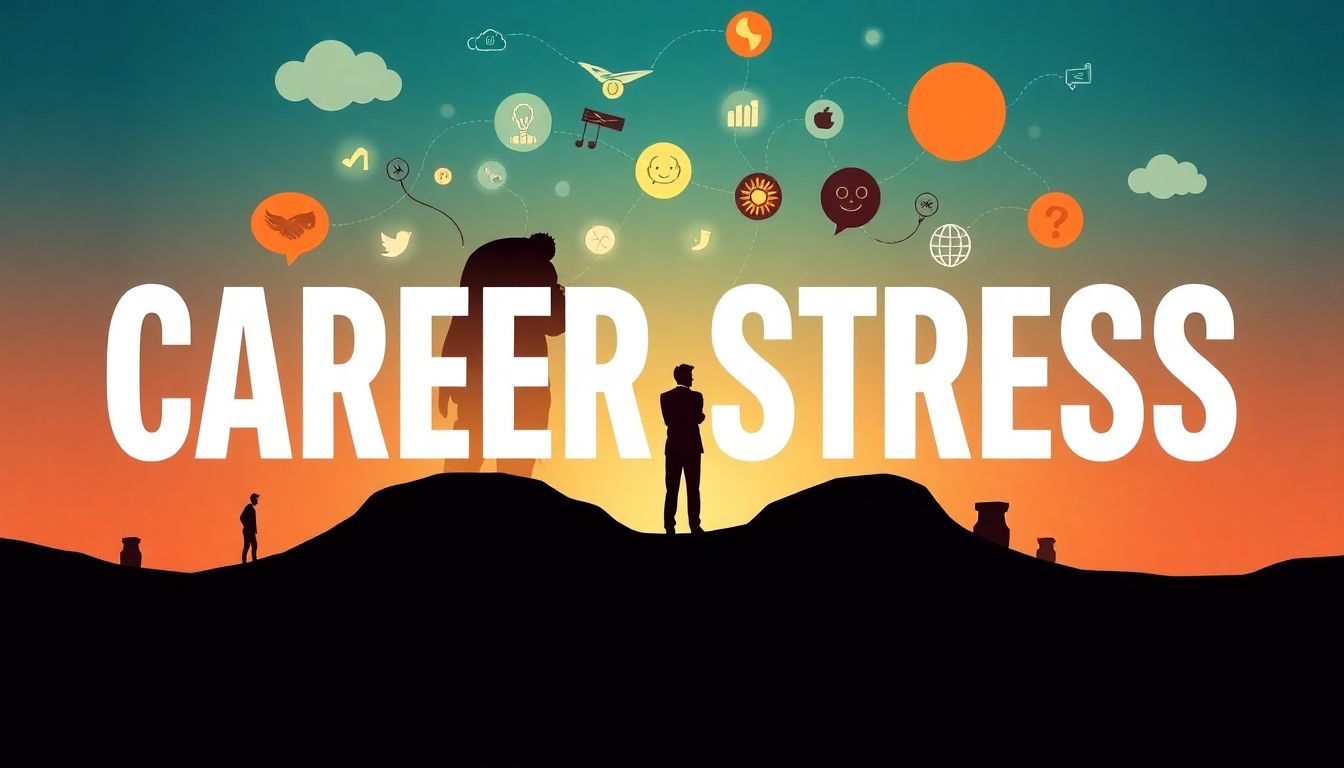Deadlines, pressure to perform, constant changes, and high expectations—stress is almost inevitable in today’s professional world. But while some stress can push you to grow, unmanaged stress can lead to burnout, disconnection, and even losing touch with your purpose.
The good news? You don’t have to wait until you’re overwhelmed to take action. With self-awareness and a few intentional practices, you can manage career stress in a way that protects your mental health and supports your success.
Let’s explore how to navigate stress without losing yourself along the way.
First, Acknowledge That Stress Is Normal
Feeling stress doesn’t mean you’re weak—or that you’re doing something wrong. It means you’re human. Stress is a natural response to situations that feel uncertain, demanding, or out of your control.
The goal isn’t to eliminate stress entirely. The goal is to manage it in ways that are healthy, sustainable, and aligned with who you are.
Know Your Early Warning Signs
Self-awareness is your first line of defense. Most people wait until they’re burned out to do something—but your body and mind usually give you clues much earlier.
Pay attention to:
- Trouble sleeping or waking up tired
- Loss of motivation or focus
- Feeling irritable or disconnected
- Frequent headaches or tension
- Avoiding work-related tasks
These signals are your system asking for support. The sooner you respond, the easier it is to recover.
Identify the Root Causes
Not all stress is created equal. The more clearly you understand what’s causing your stress, the more effectively you can respond.
Ask yourself:
- Is it the workload—or unclear expectations?
- Is it the job itself—or how I’m approaching it?
- Is it a mismatch of values, culture, or communication style?
Sometimes the stress comes from the environment. Other times, it comes from internal pressure or unrealistic standards. Identifying the true source helps you take aligned action.
Create Micro-Rituals for Recovery
You don’t need a two-week vacation to reset. Small, intentional practices throughout your day can help you stay grounded, even in busy seasons.
Try:
- Deep breathing before a meeting
- A 10-minute walk to break up screen time
- Writing down what you’re grateful for after a tough day
- Turning off notifications during focused work
These tiny moments of regulation help you build resilience—without waiting for burnout to force you to stop.
Set Boundaries That Protect Your Energy
Burnout often starts when boundaries break down. You say yes to everything. You answer emails at all hours. You sacrifice rest for “just one more task.”
But your energy is not infinite. Boundaries are how you protect it.
Start by defining:
- What time your workday starts and ends
- What types of tasks or communication drain you most
- What kind of recovery you need to feel restored
Then communicate those boundaries clearly—with yourself and with others. It’s not selfish. It’s necessary.
Redefine Productivity
In a stress-heavy culture, productivity is often equated with being busy. But real productivity is about doing meaningful work consistently—not running on empty.
You are not a machine. You’re not meant to operate at full speed all the time.
Self-awareness helps you ask:
- Am I working from purpose—or pressure?
- What tasks create the most impact for the energy they cost?
- What can I let go of without sacrificing results?
Doing less—strategically—is often the most productive move.
Connect With Your Purpose
One of the best antidotes to stress is meaning. When you remember why you’re doing what you do, it’s easier to weather the hard days.
Reconnect with your purpose by asking:
- Who or what am I helping through my work?
- What part of my role do I feel most proud of?
- How does this connect to my long-term vision?
Purpose doesn’t remove stress—but it gives it a context that keeps you going.
Don’t Wait Until You Break
You don’t need to earn rest. You don’t need to be on the verge of collapse to take a break. Self-awareness means checking in before things fall apart.
Ask yourself regularly:
- How am I, really?
- What do I need right now—emotionally, mentally, physically?
- Is there something I’ve been ignoring?
You have permission to care for yourself as you go—not just after the fact.
You Can Be Successful and Well
You don’t have to choose between performance and peace. In fact, when you manage stress with intention, you become more focused, creative, and resilient.
Success isn’t just about reaching your goals. It’s also about how you reach them—and whether you’re still yourself when you get there.
Protect your energy. Honor your boundaries. Stay connected to your “why.”
That’s how you move forward—without losing yourself.
